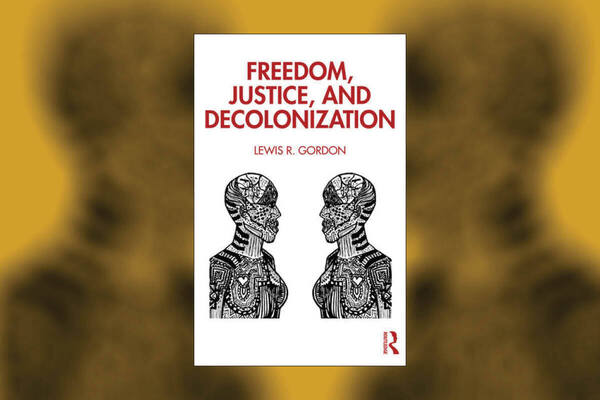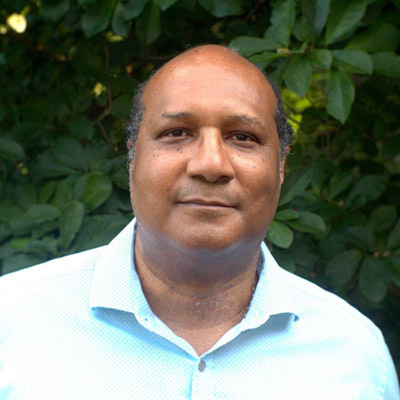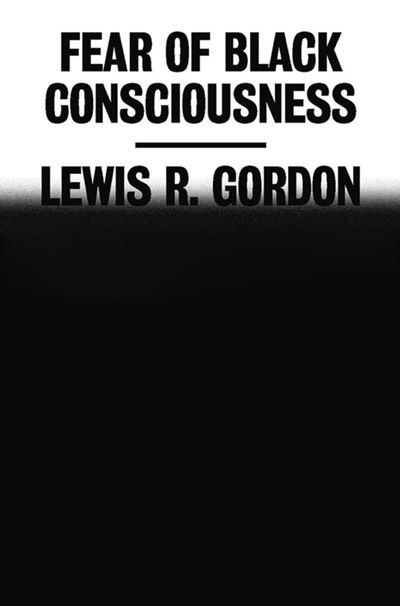
Lewis R. Gordon is professor and department head of philosophy at the University of Connecticut. His books include Freedom, Justice, and Decolonization (2021) and Fear of Black Consciousness (2022). Gordon is the 2022 recipient of the Eminent Scholar Award from the Global Development Studies division of the International Studies Association.
Gordon is the first speaker in the “Decolonizing Scholarship” lunchtime lecture series hosted by the Nanovic Institute for European Studies. This series runs through the 2023 spring and fall semesters and features scholars from various academic disciplines at the top of their fields. Gordon’s lecture, titled “Decolonizing Philosophy, Decolonizing Theory,” will take place on Friday, February 3, 2023 at 12:30 p.m. in 2050 Jenkins Nanovic Halls.
In advance of his visit to Notre Dame, the EITW editors asked Gordon to share his thoughts on the importance of decolonizing scholarship and some of ways in which scholars can decolonize in their thinking, communication, and teaching.

Europe in the World: Why do you think it is important to decolonize scholarship?
Lewis Gordon: The origins of truth are in faith. It is that [truth] into which we should place our faith because it or they are linked to reality. Bad faith ignores reality, and is thus premised on falsehoods. Colonialism relies on the misrepresentation of reality through promoting the lie of life premised on conquest, of, as Killmonger said in The Black Panther, conquerors and the conquered. What about getting rid of that false dilemma? Colonized scholarship ignores reality and truth, often through misrepresenting both. Decolonized scholarship offers the truth of our relationship or relationships to reality, which, we should remember, is always greater than us. Colonized scholarship misleads us through placing us into the bondage of ignorance and false beliefs.
EITW: What methodologies do you employ to do this work? Can you share, for example, the types of archives or sources you have used, reflect on interdisciplinary approaches, etc.?
LG: I argue for a teleological suspension of disciplinarity and methodology. What this means is that we don’t fetishize our disciplines and their methods. We seek, instead, to go beyond them into a communicative practice of what illuminates and opens our understanding. Thus, every resource is useful [in] the extent to which we don’t fetishize, ontologize, or inflate their purpose. The task is to articulate where each is most relevant. Thus, in my work, I think relationally in a search for relevance.
Building on my answer to (1), we should distinguish, as well, between research and scholarship. In the role of research, we are all students. Research is an activity of continued learning through which discoveries (a form of learning) are made. Scholarship is the expertise brought to that process and shared with the world. Both are bound to conditions of evidence, where evidentiality involves the appearance of that which will make other aspects of reality appear. Thus, every communicative practice, every way of presenting reality, from the poetic to the argumentative, from the reflective to the explanatory, offers insight.
In my work on disciplinary decadence, I argue we need more than interdisciplinarity. We need transdisciplinarity. This involves disciplines not working alongside one another but instead communicating with one another through a humble understanding of their scope. I call this a teleological suspension of disciplinarity. This involves being willing to go beyond one’s discipline for the sake of reality. I have more thoughts on this matter, but that would make this response too long. Let’s just say that disciplines and methods, developed by human or finite realities, should be open instead of closed.
“Colonization’s main source of lies is to convince not only the colonized but also colonizers that there are no alternatives. Making alternatives available is the best way to liberate both from their shackles.”
EITW: When you are addressing different audiences (for example, students in a classroom, the public, other scholars in your field), what do you have to bear in mind? How do you adapt your approach?
LG: Foremost, the goal is to communicate. This means not mystifying what one is talking about. It means rejecting obfuscation, and where specialized terms are needed, always explaining one’s terms. It also requires always respecting the intelligence of one’s audience. Doing so requires appreciating what they bring to the learning environment. All teaching environments, including those of professional presentation and public speaking, are co-learning environments. An expert is, basically, an advanced student communicating with those who are not as advanced but are interested and on their way. As their experiences may offer a unique perspective on the topic at hand, it means the less advanced student may offer a contribution, which, by definition, is that from which all participants can benefit.

EITW: How can we incorporate decolonizing materials into our teaching? Are there any strategies you recommend?
LG: There are many stratagems. My favorite is direct involvement, which involves showing and participation instead of mere telling. Colonization’s main source of lies is to convince not only the colonized but also colonizers that there are no alternatives. Making alternatives available is the best way to liberate both from their shackles. For example, most people — except for the most tenaciously neurotic, problematically invested, and dissociated — would know, if they read a piece of writing by a woman from East Africa 4,000 years ago on the meaning of philosophy and its relationship to the cosmos, that the discipline didn’t begin in Athens or among the Ionian league of city-states 2,500 years ago. Similarly, learning from recent archaeological research that paleolithic paintings were produced mostly by women would lead students and fellow researchers to ask fresh and properly critical questions about the past that would generate not only a better understanding of then but also now and, imaginatively, what could become.
EITW: Can you provide a short list (4-5) of writers or texts that inspired you to pursue this work?
LG: Long list, but here are several: Angela Y. Davis, Gloria Anzaldúa, Simone de Beauvoir, W.E.B. Du Bois, Amílcar Cabral, Anna Julia Cooper, Cheikh Anta Diop, Albert Einstein, Frederick Douglass, Frantz Fanon, Anténor Firmin, Paulo Freire, Marcus Garvey, Antonio Gramsci, Lorraine Hansberry, C.L.R. James, Karl Marx, Kwame Nkrumah, Jean-Jacques Rousseau, Jean-Paul Sartre, Malcolm X/ Malik El-Shabazz.